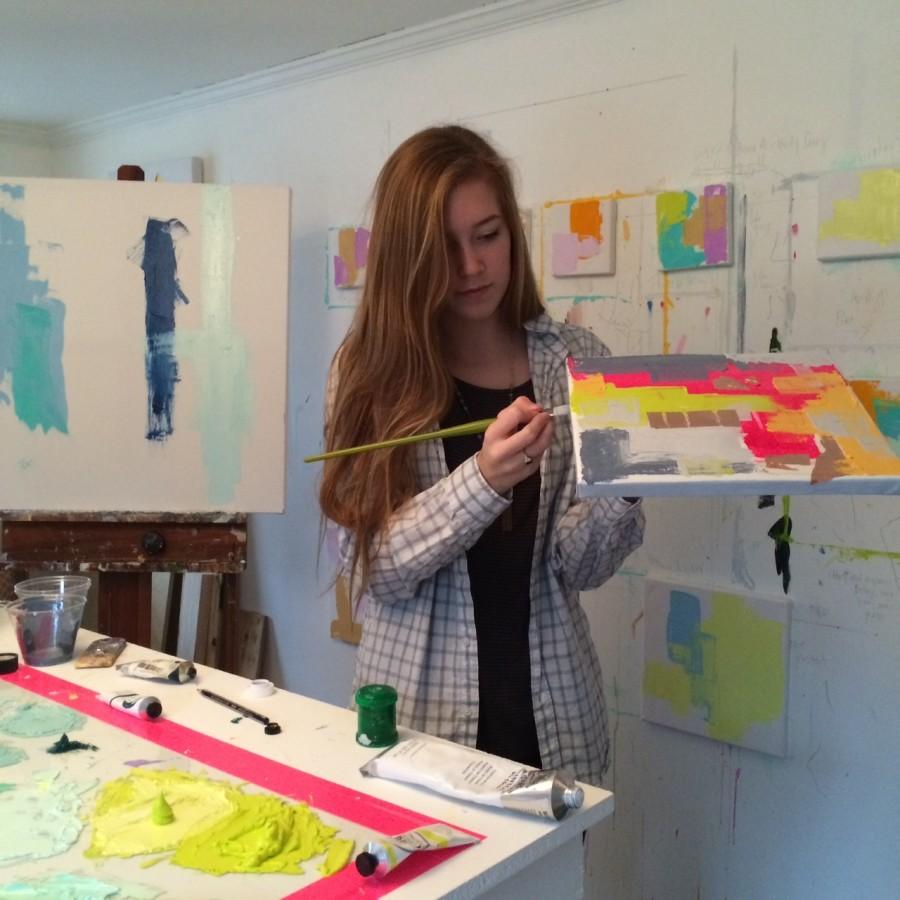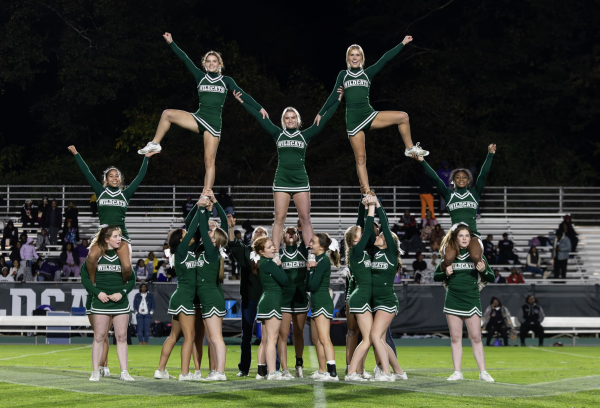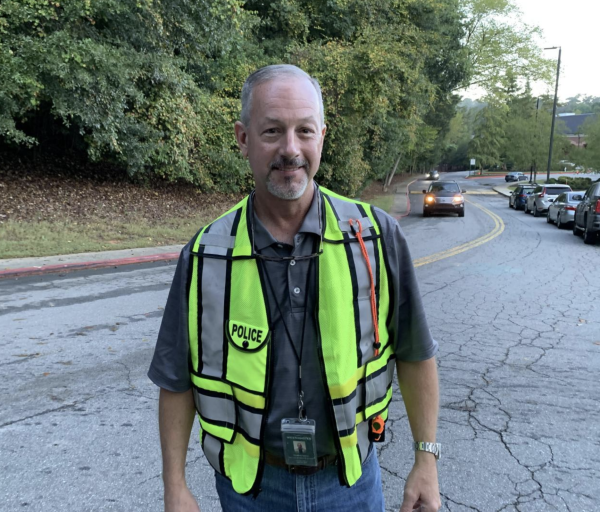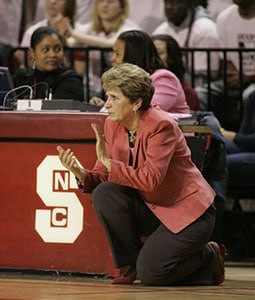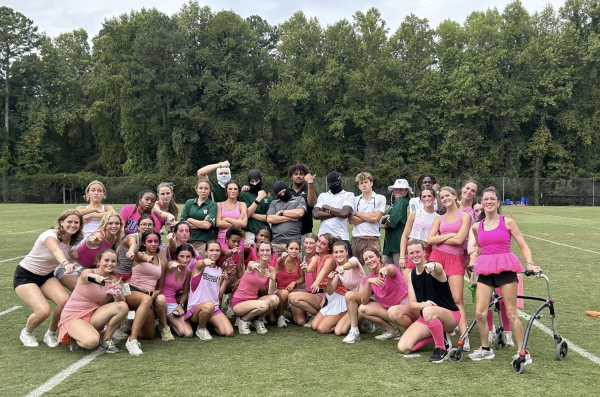Seniors explore personal interests for JanTerm
During the first several weeks of January, not every Westminster student participated in a JanTerm class. Instead, several seniors interned outside of school for a working experience. A new and required program, JanTerm takes up fourteen school days. Westminster offers dozens of appealing options, the topics spanning from the sciences to fashion to cultural immersion. However, some students approached the administrations about the possibility of internships.
“Originally we did not have a faculty member to support it, but my JanTerm didn’t make,” said head of internships Heather Bergstedt. “So, the administrations came to me and asked if I would be interested in doing [the internships].”
One student decided upon interning due to unhappiness with her assigned JanTerm.
“I really wanted to be in an JanTerm focused on art, but then I got put in a class that was non-art,” said senior Abigail Henegar. “It wasn’t a bad class, but I wanted to use these three weeks to the best of their capacity.”
Another student chose to intern after realizing that there was no JanTerm whose curriculum would be useful to her.
“While I would have loved to take a class,” said senior Callie Swayze, “I thought this experience would be more worthwhile in terms of my future educational plans.”
Bergstedt believes there to be several reasons as to why students choose internships in place of JanTerm.
“Some of them are very interested in the field they wanted to [intern] in, and there wasn’t a JanTerm offer covering that,” said Bergstedt. “They are getting the chance to see [how] they can work in the profession, and have the opportunity to see if they will study that in college.”
Though interested in different areas of learning, however, the students share one common factor.
“For every single one, it is something that has been a passion of theirs, and to be able to have that three weeks is great,” said Bergstedt. “And the interesting thing is that none of them are working in anything that JanTerm offers.”
Henegar plans to explore art at a higher level of education, such as when she graduates from the school.
“It’s really helpful to see all of these [types of art],” said Henegar. “I’m exploring what I want to do, but I definitely want to pursue art in college.”
After deciding to allow internships, the administrations sent an information sheet about internships to the seniors. Seniors interested in the prospect of internships prepared the proposal and found the internship themselves. Next, a group of faculty members met and decided which internship proposals they would accept and which ones needed revisiting.
Overall, five students interned at six distinct internship sites. Such locations included the Atlanta Speech School, Morehouse School of Medicine, CrossFit, the Justice Network, WonderRoot, and the studio of artist Augusta Wilson.
“[The interns] are getting an experience where they get to work in a field they are interested in,” said Bergstedt.
Swayze made the most of the opportunity by shadowing at the Atlanta Speech school and by helping a Speech-Language Pathologist in her clinic.
“I have learned so much more than I could have learned in a classroom setting,” said Swayze.
Though inviting, the process to obtain an internship was quite lengthy and rigorous.
“First of all, you just send a bunch of emails [to] anything that would have any programs,” said Henegar. “I talked to the [art] teachers, and basically anyone else I could, to see if something would stick.”
Next, Henegar talked to any family friends involved in the art world.
“Because it was very last minute, and I gave my contacts very little time to respond, a lot of people said ‘no’,” said Henegar.
Henegar completed the required 40 hours off campus. To do so, she divided her time between two internships, including working fifteen hours at WonderRoot, a non-profit organization located at an art center. WonderRoot, which is open to the public, has various facilities such as a dark room, recording studio, and art gallery. The other internship involved shadowing artist Augusta Wilson. Henegar found Wilson through a family friend who was classmates with Wilson at the University of Georgia.
One of Henegar’s favorite things to do was to converse with Wilson every day.
“She shares her experiences and her wisdom, talks about what she has learned, and makes you think and challenge yourself,” said Henegar. “It pushes me beyond art in the classroom.”
Swayze shared similar a experience in her own January internship by applying herself in real world job experience.
“I got to help [my mentor] with an evaluation by typing up educational reports, calculating scores, and even writing out CAAP reports, which is very challenging,” said Swayze.
Swayze also loved working with the children.
“On my last day, I got more hugs and ‘I’ll miss you’s’ then I have since I went to the summer camp,” said Swayze. “I got to see these kids struggle with things for sure, but I also got to see them succeed.”
At WonderRoot, Henegar obtained an insider’s look behind the scenes of a non-profit organization, while with Wilson, who is an interior design artist, Henegar learned about the commercial side of art. Among other things, Henegar updated Wilson’s blog, ran errands, and mixed oil paints.
“I took care of the marketing while she painted,” said Henegar.
Swayze watched how her mentor treats children and was able to ask her questions, rather than just reading a textbook.
“I’ve also gotten a lot of experience by doing write-ups for her and other work,” said Swayze. “I sadly wasn’t able to do too much because of my lack of specialized education, but even the little I was able to do was so incredible.”
The art internships familiarized Henegar with the life of an artist. “People think that being an artist is just painting all day,” said Henegar, “but there is a lot more because you actually have to sell it.”
Another major benefit of the internships is the independence the interns experience.
“The whole time I am acting like an adult,” said Henegar. “It’s really interesting to get a glimpse of that for three weeks before I go to college and enter the world.”
Furthermore, Henegar finally gets apply what she learned in the classroom to the real world. For example, Henegar used her semester’s worth of graphic design knowledge to design Wilson’s blog.
“After all of the times that Westminster has prepared me for writing essays,” said Henegar, “writing the tutorial for WonderRoot was easy for me.”
Swayze has found the experience invaluable.
“I have learned so much,” said Swayze, “more than I could’ve in a classroom setting.”
